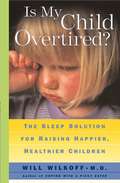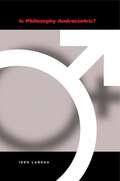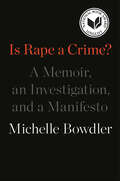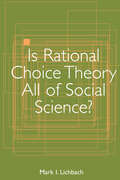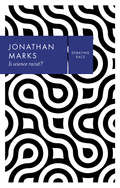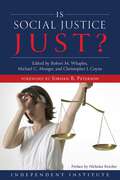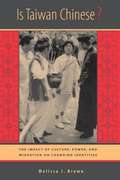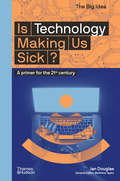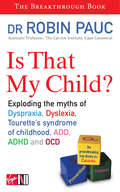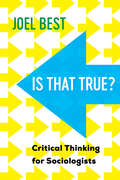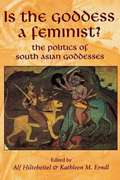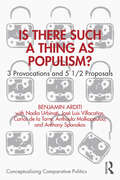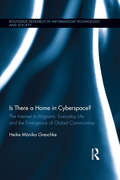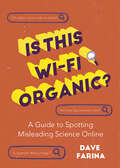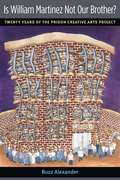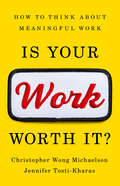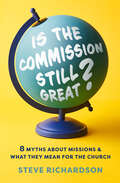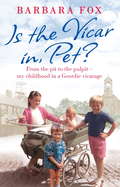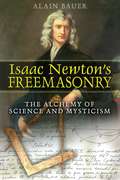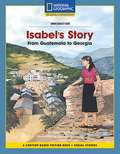- Table View
- List View
Is My Child Overtired?
by Will WilkoffWake up! Your kids are tired. More and more often, bedtime is a battle that parents just don't have the energy to fight. With the demands of juggling work, running a household, and raising kids, it is easy for parents to be lax about their children's sleep habits. They may not realize that fatigue is the number-one cause of health and behavioral problems, and it is frequently overlooked. If you find that your kids are often cranky, hyperactive, or prone to headaches and growing pains, these are red flags that they may be overtired. Describing the unique sleep requirements for every stage of a child's development from infancy through adolescence, Is My Child Overtired? is a proactive child-rearing plan that encourages parents to establish and stick to a sleep routine for the whole family. Pediatrician Will Wilkoff, M.D., explains how to recognize the signs of fatigue and gives you specific guidelines to determine how much sleep a child really needs (you'll be surprised -- they need a lot more than you think). Combining practical wisdom with a voice you can trust, Is My Child Overtired? discusses: Getting off on the right foot with your new baby Helping your child to sleep through the night Crafting a relaxing and reliable bedtime ritual Adding daytime siestas when nighttime sleep isn't enough Finding ways to maintain bedtimes on weekdays, on weekends, and even during school vacations and family trips Simply put, when your kids sleep more, they'll feel better. And so will you.
Is Philosophy Androcentric?
by Iddo LandauIn Is Philosophy Androcentric?, Iddo Landau contends that none of the arguments for viewing philosophy as pervasively androcentric ultimately stand up to rational scrutiny, while the ones that show it to be nonpervasively androcentric do not undermine it in the way that many critics have supposed. “Philosophy emerges, in almost all of its parts,” he concludes, “as human rather than male, and most parts and aspects of it need not be rejected or rewritten."
Is Rape a Crime?: A Memoir, an Investigation, and a Manifesto
by Michelle BowdlerLonglisted for the 2020 National Book Award for NonfictionTIME's 100 Must-Read Books of 2020Publishers Weekly, Best Books of 2020New York Times New & Noteworthy AudiobooksLit Hubs Most Anticipated Books of 2020Starred Review Publishers WeeklyStarred Review Shelf Awareness"Is Rape a Crime? is beautifully written and compellingly told. In 2020, we were all looking for solutions and this book was right on time. It is one we should all be reading." —Anita Hill"This standout memoir marks a crucial moment in the discussion of what constitutes a violent crime."—Publishers Weekly, Best Books of 2020 She Said meets Know My Name in Michelle Bowdler's provocative debut, telling the story of her rape and recovery while interrogating why one of society's most serious crimes goes largely uninvestigated.The crime of rape sizzles like a lightning strike. It pounces, flattens, destroys. A person stands whole, and in a moment of unexpected violence, that life, that body is gone.Award-winning writer and public health executive Michelle Bowdler's memoir indicts how sexual violence has been addressed for decades in our society, asking whether rape is a crime given that it is the least reported major felony, least successfully prosecuted, and fewer than 3% of reported rapes result in conviction. Cases are closed before they are investigated and DNA evidence sits for years untested and disregardedRape in this country is not treated as a crime of brutal violence but as a parlor game of he said / she said. It might be laughable if it didn’t work so much of the time. Given all this, it seems fair to ask whether rape is actually a crime.In 1984, the Boston Sexual Assault Unit was formed as a result of a series of break-ins and rapes that terrorized the city, of which Michelle’s own horrific rape was the last. Twenty years later, after a career of working with victims like herself, Michelle decides to find out what happened to her case and why she never heard from the police again after one brief interview. Is Rape a Crime? is an expert blend of memoir and cultural investigation, and Michelle's story is a rallying cry to reclaim our power and right our world.
Is Rational Choice Theory All of Social Science?
by Mark I. LichbachAdvocates of rational choice theory in political science have been perceived by their critics as attempting to establish an intellectual hegemony in contemporary social science, to the detriment of alternative methods of research. The debate has gained a nonacademic audience, hitting the pages of the New York Times and the New Republic. In the academy, the antagonists have expressed their views in books, journal articles, and at professional conferences. Mark I. Lichbach addresses the question of the place of rational choice theory in the social sciences in general and in political science in particular. He presents a typology of the antagonists as either rationalist, culturalist, or structuralist and offers an insightful examination of the debate. He reveals that the rationalist bid for hegemony and synthesis is rooted in the weaknesses, not the strengths, of rationalist thought. He concludes that the various theoretical camps are unlikely to accept the claimed superiority of the rationalist approach but that this opposition is of value in itself to the social sciences, which requires multiple perspectives to remain healthy. With its penetrating examination of the assumptions and basic arguments of each of the sides to this debate, this book cuts through the partisan rhetoric and provides an essential roadmap for the future of the discipline. Mark I. Lichbach is Professor of Government and Politics, University of Maryland.
Is Science Multicultural? Postcolonialisms, Feminisms, and Epistemologies
by Sandra HardingThis book explores what the last three decades of European/American, feminist, and postcolonial science and technology studies can learn from each other. Sandra introduces and discusses an array of postcolonial science studies.
Is Science Racist? (Debating Race)
by Jonathan MarksEvery arena of science has its own flash-point issues—chemistry and poison gas, physics and the atom bomb—and genetics has had a troubled history with race. As Jonathan Marks reveals, this dangerous relationship rumbles on to this day, still leaving plenty of leeway for a belief in the basic natural inequality of races.The eugenic science of the early twentieth century and the commodified genomic science of today are unified by the mistaken belief that human races are naturalistic categories. Yet their boundaries are founded neither in biology nor in genetics and, not being a formal scientific concept, race is largely not accessible to the scientist. As Marks argues, race can only be grasped through the humanities: historically, experientially, politically. This wise, witty essay explores the persistence and legacy of scientific racism, which misappropriates the authority of science and undermines it by converting it into a social weapon.
Is Social Justice Just?
by Christopher J. Coyne&“Anyone concerned with social justice will find this book makes him question his assumptions, rethink his premises, and think!&” —Andrew P. Morriss, professor, Bush School of Government and Public Service, School of Law, Texas A&M UniversityWhat is social justice? In these pages, twenty-one accomplished academics seek to do justice to &“social justice.&” Inequality exists and obviously causes rifts in societies. But it&’s not obvious how the government should address those rifts, or if it should address them at all. Have we forgotten the perhaps more efficient power of personal choice—and the corollary obligation: to serve our neighbors—to make our society more humane? Beginning with the first political philosophers in ancient Athens, and continuing right through Marx into our post-modern era, men have wrestled with the question of justice; and the answers have been as earnest as they have been varied. Today, our &“expert&” class also claim to have answers—updated answers, more &“equitable&” answers, more technological answers ... in short, answers that are simply better suited to our times. But are those answers in any way correct? Do they work? Are they—just? In these elegant, nuanced essays, the authors use the wisdom of ancient and modern philosophers to shed light on these important questions—and the answers are revealing. Armed with ample evidence from real-world experiences, lessons from history, the wisdom of the classics, modern philosophers, and even the teachings of the world religions, the contributors of Is Social Justice Just? illuminate the central role of the individual in achieving justice in all its aspects. Read Is Social Justice Just? and discover: how to do social justice wrong with the poison of resentment, envy, and ignorance; how to do social justice right with the insights of philosophers and theologians; how to respect people&’s rights and liberties without sacrificing true equality; and how to reform flawed public policies that just make everything worse. In a world of partisanship, hysteria, maliciousness, and good intentions attached to hellish outcomes, this landmark book enters the public discourse at a critical time. With a foreword by Jordan B. Peterson, a preface by Nicholas Rescher, and a collection of essays by some of the best and brightest scholars of our time, Is Social Justice Just? is a timely and urgent work. Read it, and you will begin to think about &“social justice,&” and justice, in some surprising new ways.
Is Taiwan Chinese? The Impact of Culture, Power, and Migration on Changing Identities
by Melissa J. BrownIn a unique comparison of ethnographic and historical case studies drawn from both Taiwan and China, Brown's book shows how identity is shaped by social experience--not culture and ancestry, as is commonly claimed in political rhetoric.
Is Technology Making Us Sick?: A Primer For The 21st Century (The Big Idea Series #0)
by Ian DouglasThis new volume in The Big Idea series evaluates the impact of the increased use of technology in everyday life on society. Modern technology has undoubtedly enhanced our lives in numerous, powerful ways—we can now communicate in real time with friends and colleagues around the world, and do mundane tasks such as shopping or banking at a touch. But has there been a detrimental effect on our health and happiness? Is Technology Making Us Sick? assesses the impact of our increased screen time and everyday interactions with modern technology, the ways we relate to others, and on our mental and physical health. In Is Technology Making Us Sick?, expert Ian Douglas traces the development of human interaction with technology over the last thirty years. His in-depth analysis dissects the key issues, including the consequences of social media and gaming on self-esteem, brain development, anxiety levels, loneliness, depression, and personal relationships; and the impact on our stress levels of always being plugged into the internet. Ultimately, Is Technology Making Us Sick? offers strategies to combat habit-forming products and presents ways to take advantage of revolutionary technology without falling victim to its negative impacts.
Is That My Child?
by Dr Robin PaucAt least one child in five experiences some form of learning difficulty, but:* Learning difficulties as we understand them DO NOT exist* They are not diseases just symptoms* These symptoms never appear alone* They are treatable and avoidableDr Robin Pauc, an expert in child neurology, approaches learning difficulties, including Dyslexia, ADD, OCD, ADHD, Dyspraxia and Tourette's syndrome of childhood, from a truly ground-breaking perspective. All human babies are born prematurely and develop special new brain cells four months after birth. Every human's developement in the womb and particularly in these early stages of life can, therefore, be affected by devlepement delay, which can blight childhood and marginalize a child at school. Since our brains continue to grow, however, the symptoms can also be treated.Is That My Child? Explains the backround to human developmental delay and contains:* Advice on how to get the best assessment for your child and an explanation of what the examination must include* The effects - good and bad - of certain foods on the brain* Excercises and computer programs that you can use to expand your child's neural function* Case histories of children on whom this plan has workedIn the single biggest breakthorough in the history of learning difficulties, Is That My Child? explains the cause of Development Delay Syndromes, uses simple, easy-to-follow tips to show you how to greatly reduce the risk of your child suffering, and gives advice on what can be done to treat those children that do.
Is That True?: Critical Thinking for Sociologists
by Joel BestAcross disciplines, critical thinking is praised, taught, and put into practice. But what does it actually mean to think critically? In this brief volume, sociologist Joel Best examines how to evaluate arguments and the evidence used to support them as he hones in on how to think in the field of sociology and beyond. With inimitable style that melds ethnographic verve with dry humor, Best examines the ways in which sociologists engage in fuzzy thinking through bias, faddish cultural waves, spurious reasoning, and implicit bias. The short chapters cover: A general introduction to critical thinking and logic in the social sciencesSociology as an enterpriseKey issues in thinking critically about sociological researchChallenging questions that confront sociologists and a call for the discipline to meet those challenges. Students across disciplines will learn the building blocks of critical thinking in a sociological context and come away with key concepts to put into practice.
Is The Goddess a Feminist? The Politics of South Asian Goddesses
by Alf Hiltebeitel Kathleen M. ErndlIn India, God can be female. The goddesses of Hinduism and Buddhism represent the largest extant collection of living goddesses anywhere on the planet. Feminists in the West often draw upon South Asian goddesses as theological resources in the contemporary rediscovery of the Goddess. Yet, these goddesses are products of a male supremacist society. What is the impact of powerful female deities--their images, projections, textuality, and history--on the social standing and psychological health of women? Do they empower women, or serve the interests of patriarchal culture? Is the Goddess a Feminist? looks at the goddesses of South Asia to address these questions directly. Not a book about a single goddess or even about a variety of South Asian goddesses, the volume raises questions about images of deities as symbols and the ways in which they function. Contributors discuss contemporary Indian women who have embraced goddesses as spiritually and socially liberating, as well as the seeming contradictions between the power of Indian goddesses and the lives of Indian women. They also explore such topics as the element of male desire in the embodiment of female deities, the question of who speaks for the goddesses, and the politics and theology of Western feminist use of Hindu and Buddhist goddesses as models for their feminist reflections.
Is There Such a Thing as Populism?: 3 Provocations and 5 1/2 Proposals (Conceptualising Comparative Politics)
by Benjamin ArditiIs There Such a Thing as Populism? calls into question our common understanding of populism. Taken on their own, commonplace references to the people, leaders, or elites are more like dog whistles or false positives of populism than part of a serious attempt to address the phenomenon. Scholars asked themselves, “What is populism?” without realizing that this assumed there was such a thing and that we just needed to figure out what it meant. That was a mistake. Benjamin Arditi proposes that we put this certainty on hold and start from a different premise, asking, “Is there such a thing as populism?” This doesn’t rule out its existence or take it for granted.Structured as a set of polemical interventions and theoretical proposals, Arditi addresses key theoretical, methodological, and comparative questions in the study of populism. These include the limitations of formal definitions of populism, the importance of context and the conjuncture, polemics, the situated gaze, and issues concerning strategic relations and governing from below. Five subject experts, Nadia Urbinati, José Luis Villacañas, Carlos de la Torre, Anthoula Malkopoulou, and Anthony Spanakos, react to Arditi’s theses in captivating conversations on how to study populism and the way in which populism has been used in contemporary comparative analysis. Refreshingly different and thought-provoking, Is There Such a Thing as Populism? is the ideal departure for the exploration of this diverse and fascinating political movement.
Is There a Home in Cyberspace?: The Internet in Migrants' Everyday Life and the Emergence of Global Communities (Routledge Research in Information Technology and Society)
by Heike Mónika GreschkeHow is global togetherness possible? How does the availability of the Internet alter migrants' everyday lives and senses of belonging? This book introduces an 'alien people' inhabiting a specific common virtual space in the World Wide Web, while the members of this space - most of them ethnic Paraguayans - are physically located in many different parts of the world. By developing an innovative and 'uniquely adequate' set of research methods, the author explores the interrelation of media and migration practices in their own right and sheds light not only on the living conditions of contemporary (Paraguayan) migrants, but also on emerging global forms of living together. The concentration on a single case facilitates an in-depth understanding of contemporary migration practices, cultural meanings of digital media and senses of belonging. The book discusses empirical data, methods and theoretical concepts in a reflexive writing style, allowing readers to follow the research process, and to learn from its choices and challenges which are rarely visible in most research reports. The reflexive research procedure contributes not only to the understanding of social realities in the light of globalization, but also to an advancement of sociological methods and concepts for researching social phenomena in global landscapes and mediatization.
Is This Wi-Fi Organic?: A Guide to Spotting Misleading Science Online
by Dave FarinaHow to separate facts from fake science in the Disinformation Age: “Cuts through the chaos . . . sure to keep you laughing while also keeping you thinking.” —Matt Candeias, PhD, author of In Defense of PlantsWe live in an era when scams, frauds, fake news, fake stories, fake science, and false narratives are everywhere. Fortunately, you don’t need a BS in Science to spot science BS. This guide from educator Dave Farina, aka YouTube’s Professor Dave, is a playful yet practical investigation of popular opinions and consumer trends that permeate our society. Shoppers insist on “organic” everything even if they’re unable to define the term. Healers and quantum mystics secure a foothold alongside science-based medicine in an unregulated and largely unchallenged landscape. Misleading marketing is used to sell you products and services that range from ineffectual to downright dangerous.With the knowledge gained from Dave Farina’s simple explanations of basic scientific principles, you can learn to spot misinformation and lies on the internet before they spot you. Learn the real science behind such semi-controversial subjects as drugs, vaccines, energy, and biotechnology—and most importantly, arm yourself with the critical-thinking skills everyone needs in a world filled with nonsense.“Scientific literacy is our best defense in an age of increasing disinformation.” —Kellie Gerardi, aerospace professional and author of Not Necessarily Rocket Science
Is William Martinez Not Our Brother?: Twenty Years of the Prison Creative Arts Project
by Buzz AlexanderA prison arts program attempts to reverse the trends of incarceration in America
Is Your Work Worth It?: How to Think About Meaningful Work
by Jennifer Tosti-Kharas Christopher Wong MichaelsonWhat is work that&’s worth doing in a life worth living? A revealing exploration of the questions we ask and the stories we tell about our work. According to recent studies, barely a third of American workers feel &“engaged&” at work, and for many people around the world, happiness is lowest when earning power is highest. After a global pandemic that changed why, how, and what people do for a living, many workers find themselves wondering what makes their daily routine worthwhile. In Is Your Work Worth It?, two professors – a philosopher and organizational psychologist – investigate the purpose of work and its value in our lives. The book explores vital questions, such as: Should you work for love or money? When and how much should you work? What would make life worth living in a world without work? What kind of mark will your work leave on the world? This essential book combines inspiring and harrowing stories of real people with recent scholarship, ancient wisdom, arts, and literature to help us clarify what worthy work looks like, what tradeoffs are acceptable to pursue it, and what our work can contribute to society.
Is it (Still) Mostly Fiscal? Determinants of Sovereign Spreads in Emerging Markets
by Sanjeev Gupta Emanuele Baldacci Amine MatiA report from the International Monetary Fund.
Is the Commission Still Great?: 8 Myths About Missions And What They Mean For The Church
by Steve RichardsonIs the Death Penalty Dying?
by Austin Sarat Jürgen MartschukatThis volume of "Studies in Law, Politics, and Society" presents a unique special issue "Is the Death Penalty Dying'. " Drawing together an array of distinguished scholars from political science, criminology, sociology, and law, this volume provides a compr
Is the PRGF Living Up to Expectations? An Assessment of Program Design
by Sanjeev Gupta Shamsuddin Tareq Gabriela Inchauste Mark Plant Benedict Clements Thomas Dorsey Emanuele Baldacci Nita ThackerThe creation of the Poverty Reduction and Growth Facility (PRGF) in late 1999 represented the culmination of more than two years of internal and external reviews and IMF policy discussions on the assessment and transformation of the Enhanced Structural Adjustment Facility (ESAF). The PRGF now functions as the IMF's principal instrument to support low-income countries in implementing their poverty reduction strategies. Targets and policies embodied in PRGF-supported programs should emerge from the country's own poverty reduction strategy, as laid out in its PRSP or Interim PRSP (I-PRSP). Key features which PRGF programs have in common were identified as follows: Broad participation and greater ownership; Embedding of the PRGF in the overall strategy for growth and poverty reduction; Budgets that are more pro-poor and pro-growth; Appropriate flexibility in fiscal targets ensured; More selective structural conditionality; Emphasis on measures to improve public resource management/accountability; Social impact analysis of major macroeconomic adjustments and structural reforms. The remainder of this paper provides an assessment of the extent to which PRGF-supported programs have implemented the individual key features.
Is the Vicar in, Pet?: From the Pit to the Pulpit – My Childhood in a Geordie Vicarage
by Barbara FoxIn the heart of Ashington - a bustling Geordie mining town - a handsome red-brick vicarage, surrounded by rambling gardens, stands proudly among the rows of terraced houses. It is the perfect place for playing games, keeping secrets and chasing the ghosts of previous occupants, and it will be nine-year-old Barbara's new home now that her father is to be vicar in this strange new place. In this charming memoir, Barbara Fox recalls a childhood where parishioners knocked on the door at all hours of the day and night, and where no one batted an eye at the collection of waifs and strays who regularly joined the family at the kitchen table. This is a warm-hearted, classic tale of family, community and the unforgettable thrill of childhood adventure.
Is the Vicar in, Pet?: From the Pit to the Pulpit – My Childhood in a Geordie Vicarage
by Barbara FoxIn the heart of Ashington - a bustling Geordie mining town - a handsome red-brick vicarage, surrounded by rambling gardens, stands proudly among the rows of terraced houses. It is the perfect place for playing games, keeping secrets and chasing the ghosts of previous occupants, and it will be nine-year-old Barbara's new home now that her father is to be vicar in this strange new place. In this charming memoir, Barbara Fox recalls a childhood where parishioners knocked on the door at all hours of the day and night, and where no one batted an eye at the collection of waifs and strays who regularly joined the family at the kitchen table. This is a warm-hearted, classic tale of family, community and the unforgettable thrill of childhood adventure.
Isaac Newton's Freemasonry: The Alchemy of Science and Mysticism
by Alain BauerAn exploration of how modern Freemasonry enabled Isaac Newton and his like-minded contemporaries to flourish • Shows that Freemasonry, as a mystical order, was conceived as something new--an amalgam of alchemy and science that had little to do with operative Freemasonry • Reveals how Newton and his friends crafted this “speculative,” symbolic Freemasonry as a model for the future of England • Connects Rosslyn Chapel, Henry Sinclair, and the Invisible College to Newton and his role in 17th-century Freemasonry Freemasonry, as a fraternal order of scientists and philosophers, emerged in the 17th century and represented something new--an amalgam of alchemy and science that allowed the creative genius of Isaac Newton and his contemporaries to flourish. In Isaac Newton’s Freemasonry, Alain Bauer presents the swirl of historical, sociological, and religious influences that sparked the spiritual ferment and transformation of that time. His research shows that Freemasonry represented a crossroads between science and spirituality and became the vehicle for promoting spiritual and intellectual egalitarianism. Isaac Newton was seminal in the “invention” of this new form of Freemasonry, which allowed Newton and other like-minded associates to free themselves of the church’s monopoly on the intellectual milieu of the time. This form of Freemasonry created an ideological blueprint that sought to move England beyond the civil wars generated by its religious conflicts to a society with scientific progress as its foundation and standard. The “science” of these men was rooted in the Hermetic tradition and included alchemy and even elements of magic. Yet, in contrast to the endless reinterpretations of church doctrine that fueled the conflicts ravaging England, this new society of Accepted Freemasons provided an intellectual haven and creative crucible for scientific and political progress. This book reveals the connections of Rosslyn Chapel, Henry Sinclair, and the Invisible College to Newton’s role in 17th-century Freemasonry and opens unexplored trails into the history of Freemasonry in Europe.
Isabel's Story: From Guatemala To Georgia
by Julia SchafferA family from Guatemala finds peace and a new life in Georgia. Spanning different regions, time periods, and ethnic groups, this series of fictional accounts help students explore the American immigrant experience. Readers are introduced to some of the reasons why people move to a new land, and they experience the triumphs and tragedies of families who risked the journey to America.
